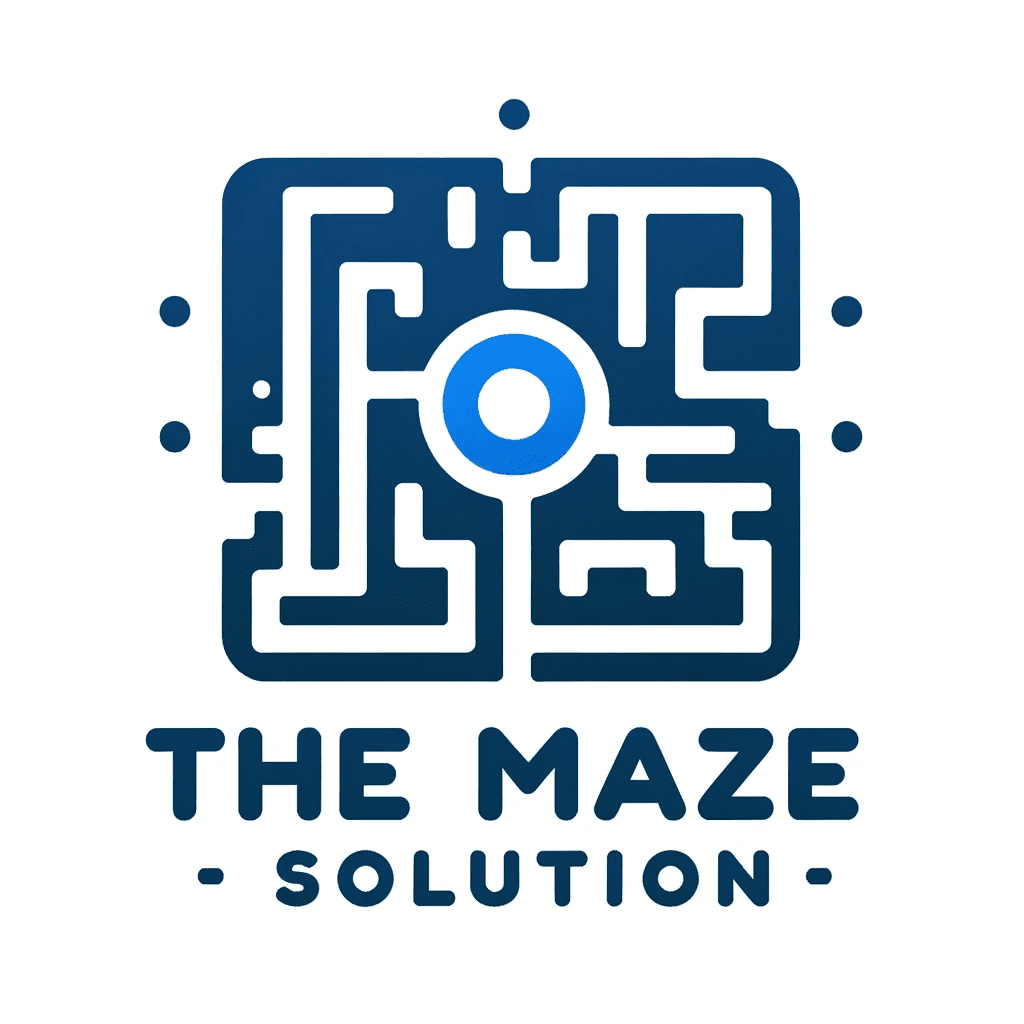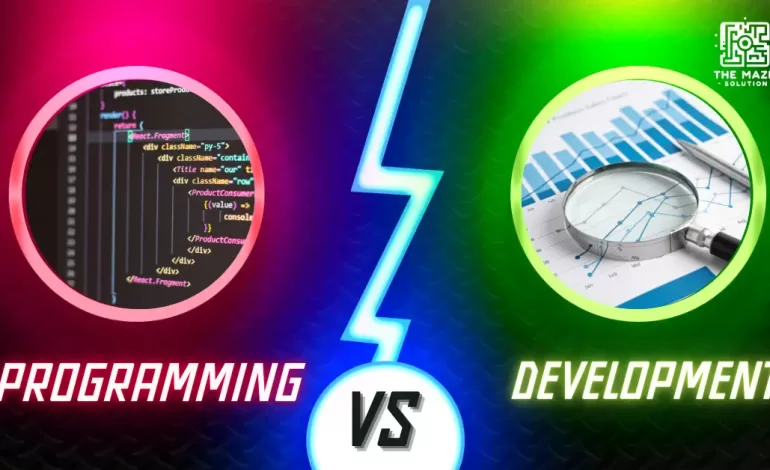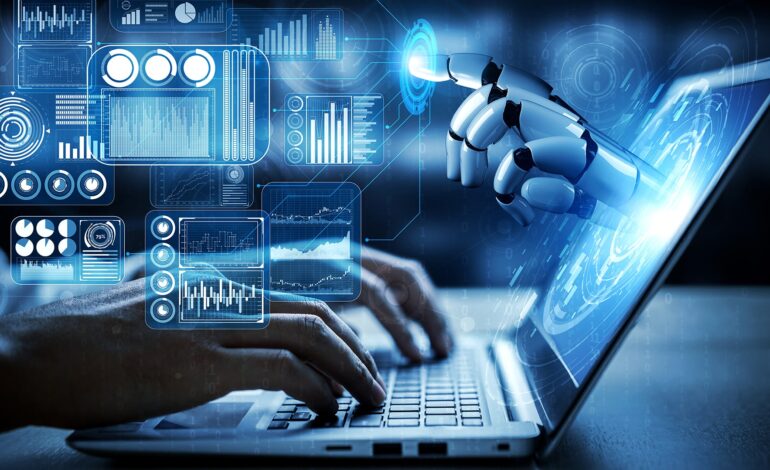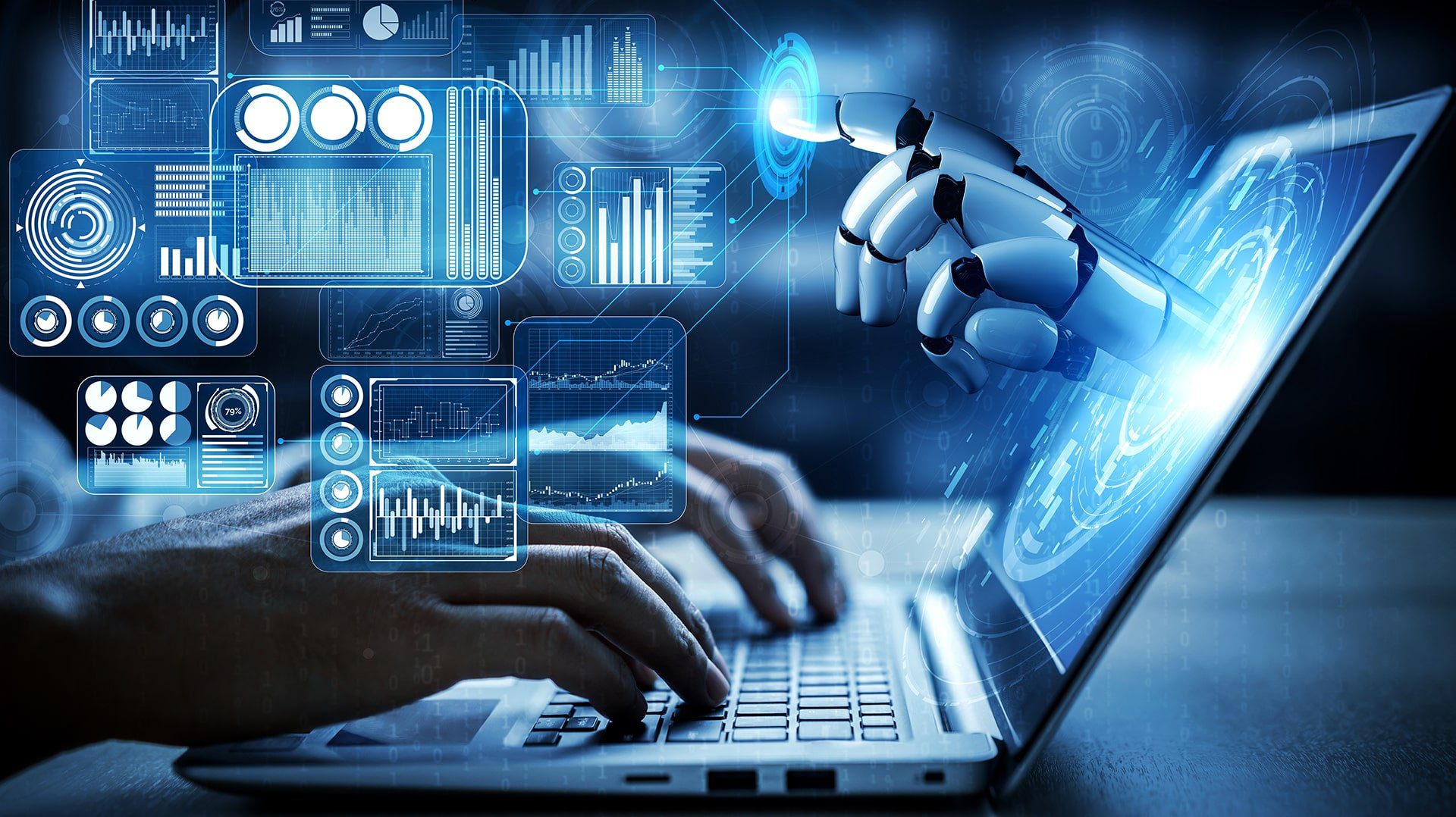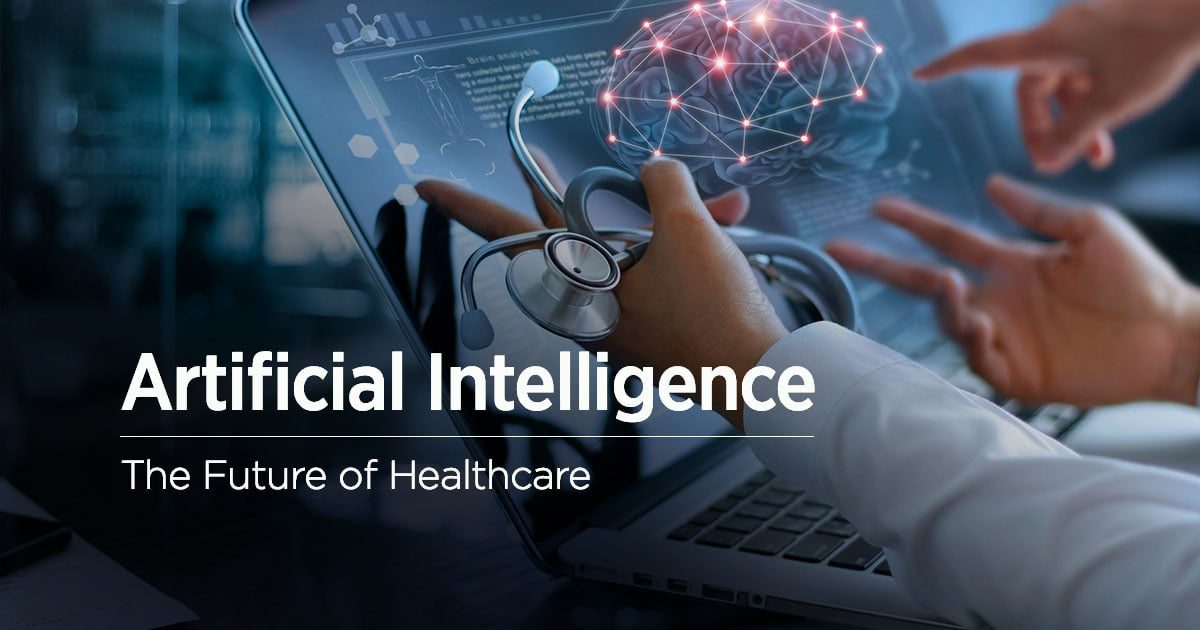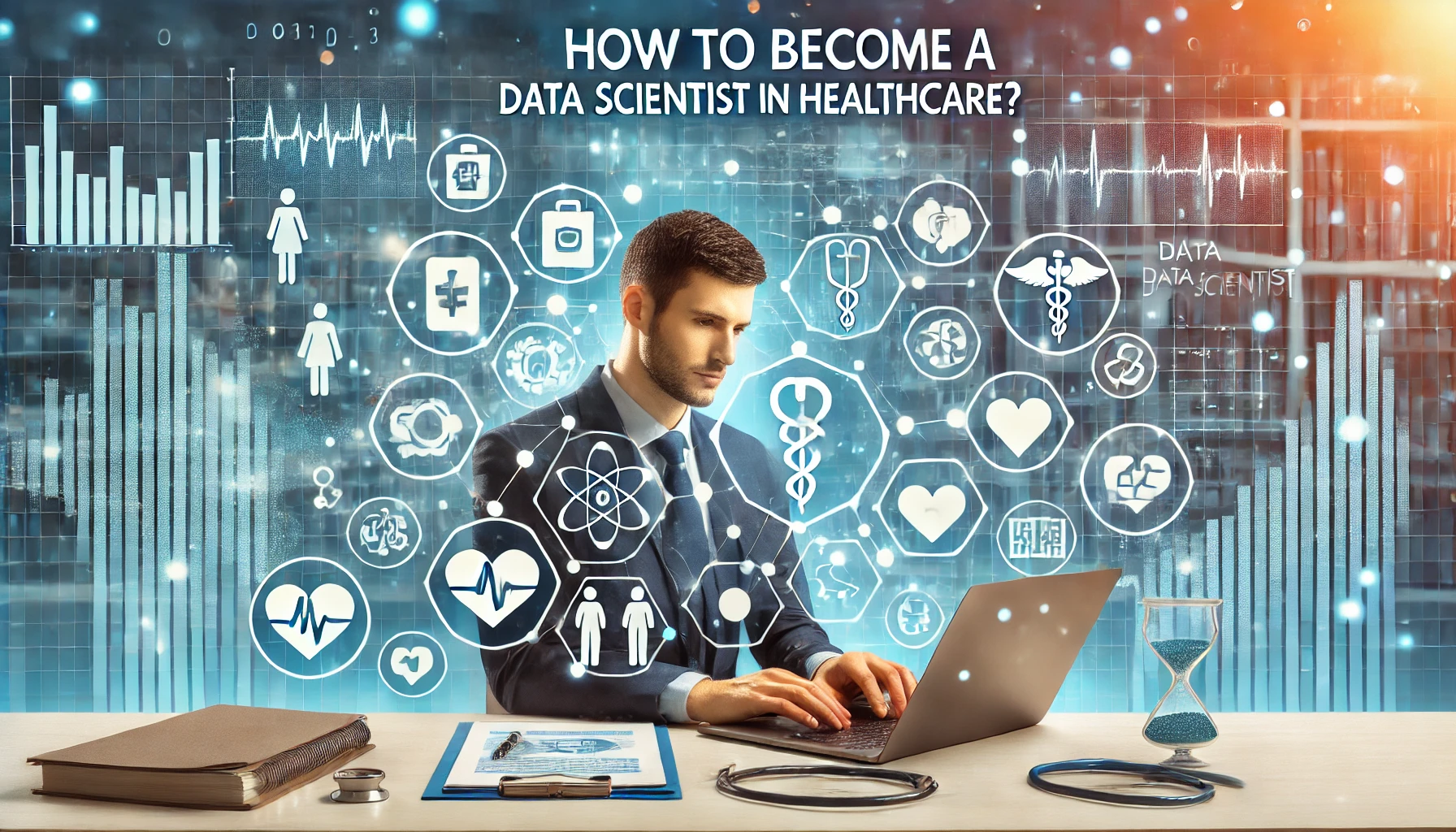10 Ways Artificial Intelligence is Revolutionizing Daily Life
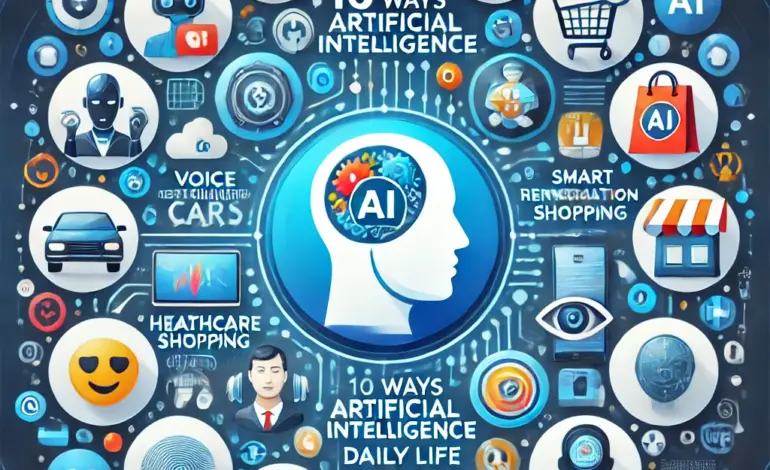
Artificial intelligence transforms daily lives.
AI, or artificial intelligence, is no longer just a far-off idea; it’s now a big part of our everyday lives. The use of AI is making our lives easier in ways we couldn’t have thought ten years ago, whether we are aware of it or not. The ten cases in this blog post show how artificial intelligence is changing different parts of our daily lives.AI, or artificial intelligence, is no longer just a far-off idea; it’s now a big part of our everyday lives.
The use of AI is making our lives easier in ways we couldn’t have thought ten years ago, whether we are aware of it or not. The ten cases in this blog post show how artificial intelligence is changing different parts of our daily lives.
The impact of artificial intelligence on our lives is growing every day.
AI has become a buzzword, but it’s much more than just a trend. For tech enthusiasts and everyday users alike, understanding the practical applications of artificial intelligence can be both exciting and enlightening. Artificial intelligence, far from its confines in science fiction, is revolutionising everything from healthcare to entertainment. In this post, you’ll discover ten specific uses of artificial intelligence in daily life, supported by real-world examples and case studies.
Also: ChatGPT Explained : A Comprehensive Guide to Effective Prompting
AI in Communication
Language Translation
AI-powered language translation tools like Google Translate make it simple to communicate with people from different cultures. These tools are becoming increasingly accurate, breaking down language barriers and fostering global collaboration.
Sentiment Analysis
Companies use AI to analyze social media posts, reviews, and other online content to gauge public sentiment. This helps businesses understand their customers better and make informed decisions.
Virtual Meetings
AI enhances virtual meetings by providing real-time transcription, translation, and even summarization. This makes remote work more efficient and inclusive.
Technology is best when it brings people together
Matt Mullenweg, social media entrepreneur
AI in Entertainment
Content Recommendations
Have you ever wondered how Netflix always seems to know what you want to watch next? That’s AI at work. By analysing your viewing habits, artificial intelligence algorithms recommend content you’re likely to enjoy, making your binge-watching sessions more enjoyable.
Creating original content
AI is also stepping into the creative realm. Some platforms use AI to write scripts, compose music, and even generate artwork. While it’s not replacing human creativity, it’s opening up new possibilities for content creation.
Personalised Advertisin
AI-driven advertising platforms analyze your online behavior to serve you ads that are relevant to your interests. This makes advertising more effective for brands and less intrusive for consumers.
Software is currently dominating the world, but AI will eventually consume software.
Jensen Huang
AI in Transportation
Autonomous Vehicles
Self-driving cars are one of the most talked-about applications of AI in transportation. Companies like Tesla and Waymo are developing autonomous vehicles that promise to make our roads safer and reduce traffic congestion.
Traffic Management
AI is also improving traffic management systems by analysing real-time data to optimise traffic flow. This can reduce congestion, save fuel, and make commuting less stressful.
Ride-Sharing Services
Ride-sharing apps like Uber and Lyft use artificial intelligence to match riders with drivers, predict demand, and optimise routes. This results in shorter wait times and more efficient rides.
I imagine a world in which AI is going to make us work more productively, live longer, and have cleaner energy.
Fei-Fei Li
AI in Healthcare
Changing the way we diagnose and treat
AI is making changes in healthcare by making it easier to diagnose problems and plan treatments. AI algorithms, for example, can look at medical images more quickly and more correctly than doctors can. This means that illnesses like cancer can be found and treated more quickly and more effectively.
Medicine Made Just for You
Another interesting use is personalized medicine. With AI, doctors can make sure that each patient gets the best care possible by looking at their genes and habits. This makes sure that people get the best treatments with the fewest side effects.
Virtual Health Assistants
Virtual health assistants that are driven by AI are available 24 hours a day, seven days a week to help patients. They can give medical advice, remind patients to take their medications, and even manage long-term conditions. These assistants make it easier and more available for everyone to get medical care.
Enhancing Predictive Analytics
AI is also very important in predictive analytics, which uses computers to look at huge amounts of data to guess what will happen with patients, with diseases, and even with how they will react to treatment. This proactive method helps better allocate resources and start interventions early, which improves patient care in the long run.
Getting routine work done faster
In healthcare settings, AI helps make administrative chores easier in addition to its clinical uses. AI makes healthcare workers’ jobs easier by automating tasks like scheduling appointments, keeping patient records, and billing. This lets them focus more on caring for patients.
AI and Blockchain: A Powerful Combination
Putting AI and blockchain technology together can make it much more useful in healthcare. Blockchain makes sure that managing patient data is safe and clear, which eases worries about data safety and accuracy. AI can access a more reliable and complete information through blockchain, which can lead to more accurate diagnoses and personalized treatment plans.
For a deeper dive into how blockchain technology is transforming healthcare by enhancing data security, interoperability, and patient trust, check out my previous blog post: The Benefits of Blockchain in Healthcare.
As a technologist, I see how AI and the fourth industrial revolution will impact every aspect of people’s lives.
Fei-Fei Li
AI in Finance
How to Find Fraud
Artificial intelligence programs are very good at finding fraud. They can find suspicious behavior and immediately notify financial institutions by looking at transaction patterns. This keeps losses to a minimum and keeps customers safe.
Strategies for Investing
In the world of investing, AI is also making changes. Robo-advisors use AI to build and handle portfolios for you based on your risk tolerance and financial goals. This opens up buying to more people, making it easier for them to do.
Help with Customers
In the finance industry, chatbots powered by AI answer customer questions, give account details, and even help people apply for loans. This makes service better and cuts down on wait times.
Risk Management
AI is improving risk management by analyzing enormous quantities of data to anticipate potential financial downturns and risks. Using these insights, financial institutions can make more informed decisions, thereby mitigating risks before they affect the business.
Personal Finance Management
AI-driven personal finance apps help users manage their finances by tracking spending, setting budgets, and providing personalized financial advice. These tools empower consumers to take control of their financial health.
Algorithmic Trading
AI is essential in algorithmic trading, as it analyzes market data at lightning speed to execute trades at the most opportune periods. This high-frequency trading strategy optimizes returns and mitigates risks for investors.
AI and Blockchain: A Powerful Combination
The combination of AI and blockchain technology holds great promise for the finance sector. Blockchain ensures secure, transparent transactions and data integrity, which enhances the reliability of AI algorithms. When integrated, these technologies can significantly improve fraud detection, streamline processes, and increase trust in financial transactions.
For more insights on how blockchain is transforming the finance sector by enhancing security, transparency, and efficiency, check out my previous blog post: The Benefits of Blockchain in Finance.
To say that AI will start doing what it wants for its own sakes is like saying a calculator will start making its own calculations.
Oren Etzioni
AI in Shopping and E-Commerce
Personalized shopping experiences
Online shopping has never been more personalised, thanks to artificial intelligence. Algorithms analyse your browsing history and preferences to recommend products you’re likely to love. This not only enhances your shopping experience but also increases retailers’ sales.
Efficient Inventory Management
Artificial intelligence helps retailers manage inventory more efficiently by predicting demand and optimizing stock levels. This reduces waste, saves money, and ensures that popular items are always available.
Improved customer service
Chatbots and virtual assistants are becoming the first point of contact for customer service inquiries. They can handle multiple queries simultaneously, provide instant responses, and free up human agents to deal with more complex issues.
AI is everywhere.Artificial Intelligence (AI) is not a looming, frightening phenomenon of the future. AI is here with us.
Fei-Fei Li
ALSO: Top Artificial Intelligence Gadgets 2024
AI in Smart Homes
Smart Homes
AI-powered smart home devices, like thermostats and lighting systems, learn your preferences and adjust settings automatically. This makes your home more comfortable and energy-efficient.
Voice Assistants
Voice assistants like Amazon Alexa and Google Assistant use AI to understand and respond to your commands, making it easier to control your smart home devices, set reminders, and play music.
Security Systems
AI-enhanced security systems can recognise faces, detect unusual activities, and alert homeowners in real time. This makes homes safer and gives owners peace of mind.
I definitely fall into the camp of thinking of AI as augmenting human capability and capacity.
Satya Nadella
AI in Education
Personalised Learning
AI is transforming education by providing personalized learning experiences. Educational platforms use AI to adapt lessons to each student’s pace and style, making learning more effective and engaging.
Automated Grading
Teachers can save time with AI-powered grading systems that evaluate assignments and provide feedback instantly. This allows educators to focus more on teaching and less on administrative tasks.
Virtual Tutors
Virtual tutors powered by AI offer additional support to students outside of the classroom. They can answer questions, provide explanations, and help with homework, making learning more accessible.
We’ve developed AI tools to identify terrorists attempting to disseminate content, and our systems flag 99 percent of the terrorist content we remove before any human notices it or flags it for us.
Mark Zuckerberg
AI in Social Media
Social media platforms are heavily reliant on artificial intelligence. AI algorithms curate our newsfeeds, showing us content that we’re likely to engage with. We use facial recognition technology to tag friends in photos, and AI-powered filters enhance our selfies and videos.
Social media companies also use AI to combat hate speech, misinformation, and online harassment. AI algorithms can identify and flag inappropriate content, making social media platforms safer and more welcoming for users.
How do we use artificial intelligence in our daily lives on social media?
Our social media experiences deeply integrate AI, ranging from personalised newsfeeds to facial recognition and content moderation. While AI can enhance our social media interactions, it’s important to be aware of its potential drawbacks, such as filter bubbles and the spread of misinformation.
There are three basic approaches to AI: case-based, rule-based, and connectionist reasoning.
Marvin Minsky
AI in Personal Productivity
Task Management
Task management technologies driven by artificial intelligence enable you remain orderly and focused. To increase output, they set reminders, rank chores, even automate tedious ones.
Email Management
AI can help you manage your inbox by sorting emails, highlighting important messages, and even drafting responses. This saves time and reduces email-related stress.
Time Tracking
AI-powered time-tracking tools monitor how you spend your time and provide insights to improve your efficiency. They can also suggest breaks and help you maintain a healthy work-life balance.
We can build a much brighter future where humans are relieved of menial work using AI capabilities.
Andrew Ng
AI is at the forefront of future innovations.
Space Exploration
AI is playing a crucial role in space exploration. From guiding rovers on Mars to analysing data from space telescopes, AI is helping us explore the final frontier.
Environmental Conservation
Environmental conservation efforts use AI to track wildlife, monitor deforestation, and predict natural disasters. This helps us protect our planet and mitigate the effects of climate change.
Healthcare Advancements
AI continues to advance healthcare by developing new treatments, improving diagnostic accuracy, and personalising patient care. The future of medicine is bright, with AI at the helm.
Artificial intelligence is not just a buzzword; it’s a game-changer that’s transforming our daily lives in profound ways. From healthcare and retail to education and finance, AI is making our world smarter, more efficient, and more connected. For tech enthusiasts, staying updated on AI trends and applications is crucial.
Excited about the possibilities AI holds? Want to explore more about how AI can benefit your life and work?
What are 10 ways AI is used today?
AI is shaping numerous facets of our daily lives and business operations. Here are ten common applications:
Customer Service Chatbots: AI-powered chatbots handle customer inquiries 24/7, providing instant support and enhancing customer satisfaction.
Personal Assistants: Devices like Amazon Alexa and Google Assistant help manage daily tasks, control smart home devices, and provide quick information.
Healthcare Diagnostics: AI systems analyze medical images and data to assist in diagnosing diseases and suggesting treatments.
Fraud Detection: Banks use AI algorithms to detect suspicious activities and prevent fraud.
Autonomous Vehicles: Companies like Tesla are developing AI for self-driving cars to improve transportation safety and efficiency.
Content Recommendations: Platforms like Netflix and Spotify use AI to recommend movies and music based on user preferences.
Supply Chain Optimization: AI helps businesses predict demand, manage inventory, and optimize logistics.
Financial Trading: AI algorithms analyze market data to make informed trading decisions quickly and accurately.
Smart Home Devices: AI integrates into home security systems, lighting, and climate control to create a more convenient living environment.
Language Translation: Tools like Google Translate use AI to provide real-time translations, breaking down language barriers.
What are 5 common uses of AI in our daily lives?
AI is becoming more integrated into our everyday routines. Here are five common uses:
Voice Assistants: Siri, Alexa, and Google Assistant help with tasks like setting reminders, playing music, and answering questions.
Streaming Services: AI recommends shows and movies based on your viewing history on platforms like Netflix and Hulu.
Smart Home Devices: AI controls home security systems, thermostats, and lighting through devices like Nest and Ring.
Online Shopping: E-commerce platforms use AI to personalize shopping experiences and recommend products.
Navigation Apps: AI helps apps like Google Maps and Waze provide real-time traffic updates and route optimizations.
How artificial intelligence will revolutionize our lives?
AI is poised to bring significant changes across various sectors, including:
Healthcare: Improved diagnostics, personalized medicine, and advanced treatment options.
Transportation: Safer, more efficient travel with autonomous vehicles.
Education: Personalized learning experiences and AI-driven educational platforms.
Business: Enhanced decision-making, streamlined operations, and improved customer service.
Home Life: Greater convenience and efficiency through smart home devices.
How artificial intelligence is revolutionizing?
AI is transforming business operations and strategies in numerous ways:
Data Analysis: AI-powered tools analyze vast amounts of data to provide actionable insights and drive business decisions.
Customer Support: AI chatbots and virtual assistants offer immediate, around-the-clock customer service.
Marketing: Personalized marketing campaigns and AI-driven content recommendations boost engagement and conversions.
Productivity: Automation of routine tasks allows employees to focus on more complex, value-added activities.
Predictive Maintenance: AI predicts equipment failures and schedules maintenance to avoid costly downtimes.
What are some AI-powered home devices available today?
Several AI-powered home devices can enhance your lifestyle, including:
Smart Speakers: Devices like Amazon Echo and Google Home with built-in voice assistants. Check on Amazon
Smart Thermostats: AI-enabled thermostats like Nest Learning Thermostat that optimize home heating and cooling.Check on Amazon
Home Security Systems: AI-powered systems like Ring and Arlo that offer advanced surveillance and security features. Check on Amazon
Robot Vacuums: Intelligent vacuum cleaners like Roomba that automate home cleaning. Check on Amazon
Smart Lighting: Systems like Philips Hue that adjust lighting based on user preferences and activities. Check on Amazon
How can business professionals benefit from AI Business Solutions?
AI Business Solutions offer several advantages for business professionals:
Enhanced Decision-Making: AI analyzes data to provide deeper insights and better-informed decisions.
Operational Efficiency: Automate repetitive tasks and improve overall operational efficiency.
Customer Insights: Gain a better understanding of customer behavior and preferences.
Market Trends: Stay ahead of market trends through predictive analytics.
Risk Management: Identify potential risks and implement strategies to mitigate them.
What are the advantages of Educational AI Platforms for educators?
Educational AI Platforms offer multiple benefits for educators:
Personalized Learning: Tailor instruction to meet individual student needs and learning styles.
Automated Grading: Save time with AI-driven grading systems that provide instant feedback.
Student Engagement: Use interactive tools to engage students and make learning more dynamic.
Data-Driven Insights: analyze student performance data to identify areas for improvement and track progress.
Resource Management: Optimize resource allocation and streamline administrative tasks.
